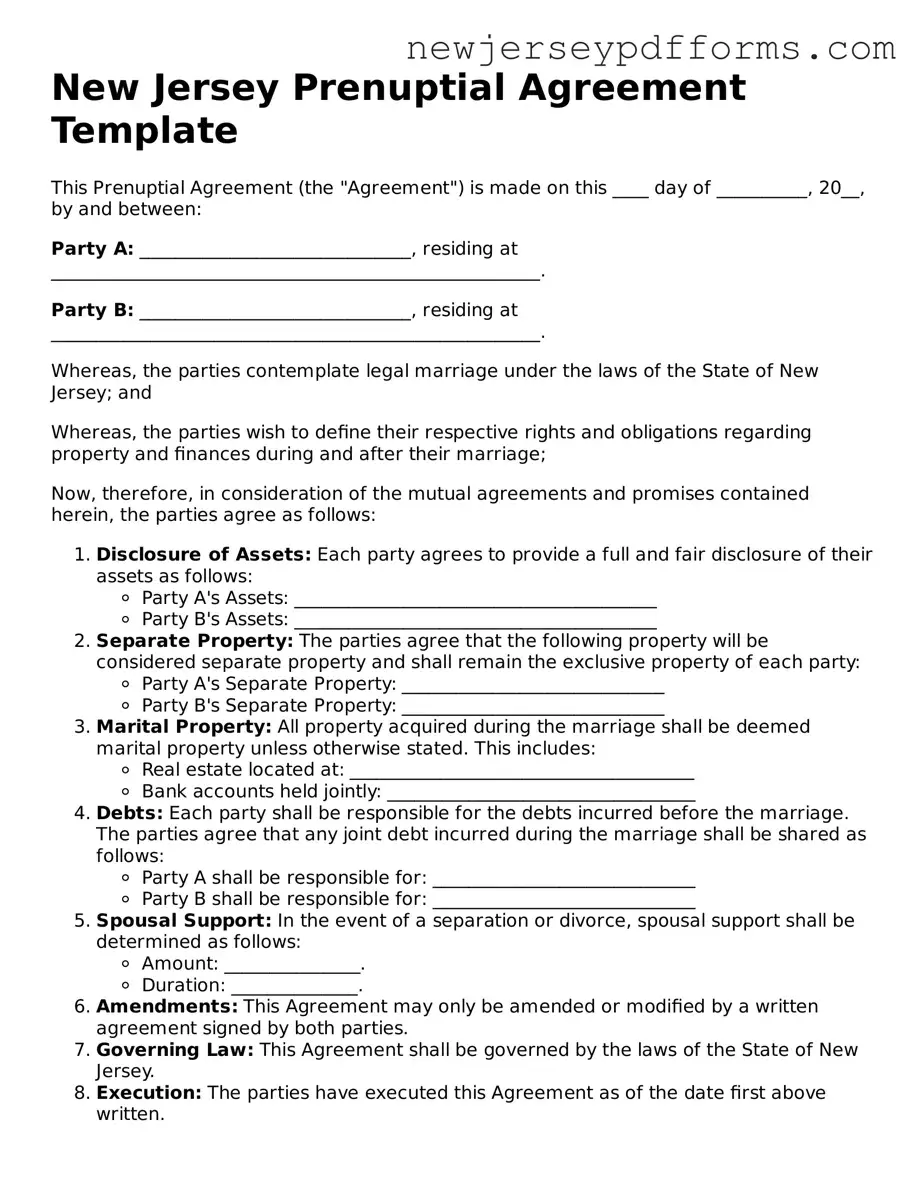What is a prenuptial agreement in New Jersey?
A prenuptial agreement, often called a prenup, is a legal contract between two individuals before they get married. It outlines how assets and debts will be divided in the event of a divorce or separation. In New Jersey, these agreements are recognized and enforceable as long as they meet certain legal standards. They can cover a range of issues, including property rights, spousal support, and financial responsibilities during the marriage.
Why should I consider a prenuptial agreement?
Many couples choose to create a prenup to protect their individual assets and clarify financial expectations. This can be particularly important for those entering a marriage with significant assets, business interests, or children from previous relationships. A prenup can also help reduce conflict and uncertainty in the event of a divorce, making the process smoother for both parties.
What are the legal requirements for a prenuptial agreement in New Jersey?
In New Jersey, a valid prenuptial agreement must be in writing and signed by both parties. Each person should have the opportunity to review the agreement with their own attorney to ensure that they fully understand its implications. Additionally, the agreement must be entered into voluntarily, without coercion or undue influence. Full disclosure of assets and debts is also essential for the agreement to be enforceable.
Can a prenuptial agreement be modified or revoked?
Yes, a prenuptial agreement can be modified or revoked after marriage. Both parties must agree to the changes, and the modifications should be documented in writing and signed by both individuals. It is advisable to consult legal counsel when making changes to ensure that the new agreement remains enforceable.
What happens if one party does not comply with the prenup?
If one party fails to comply with the terms of the prenuptial agreement, the other party may seek enforcement through the court. The court will review the agreement to determine its validity and whether it was executed properly. If the prenup is deemed enforceable, the court can compel compliance or address any violations as necessary.
Are there any issues that cannot be included in a prenuptial agreement?
Yes, certain issues cannot be included in a prenuptial agreement in New Jersey. For example, agreements that waive child support obligations are generally not enforceable. Additionally, provisions that are deemed unconscionable or that violate public policy may also be struck down by the court. It is essential to focus on financial matters and property rights when drafting a prenup.
How do I create a prenuptial agreement?
To create a prenuptial agreement, both parties should first discuss their financial situations and expectations. It is advisable to consult with attorneys who specialize in family law to draft the agreement. The attorneys can ensure that the document meets legal standards and adequately protects both parties' interests. Once the agreement is drafted, both individuals should review it thoroughly before signing.
Is a prenuptial agreement only for wealthy individuals?
No, a prenuptial agreement is not just for wealthy individuals. People from various financial backgrounds can benefit from a prenup. It can help clarify financial rights and responsibilities, regardless of the couple's wealth. For those with modest assets, a prenup can still provide peace of mind and help avoid potential disputes in the future.

